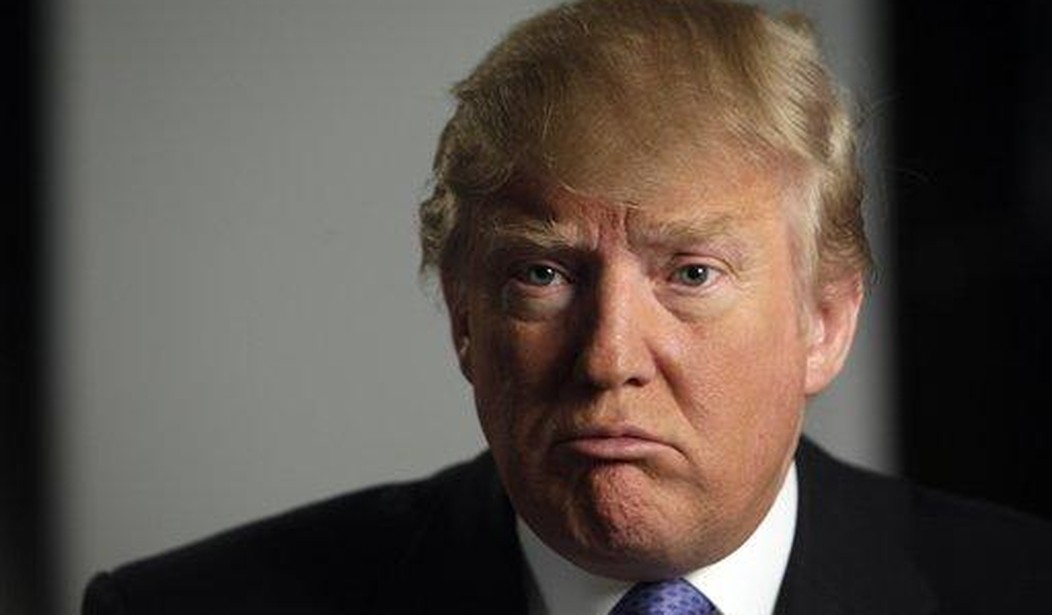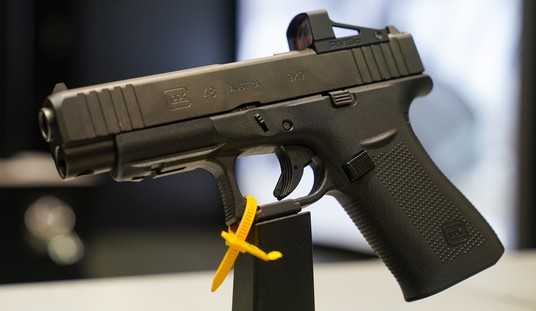Former President Donald Trump is now a convicted felon.
That's wonderful news to a lot of people, mostly because they loathe the man to such an intense degree that rationality often takes a backseat.
And that's putting it mildly.
Many people are enjoying pointing out that Trump can no longer lawfully own firearms. Not everyone who points it out is celebrating that fact, mind you, but many are. It doesn't require him to change his policies on the Second Amendment or anything, but he can't lawfully be in possession of them.
And that's actually a bit of a problem.
It's not an issue because Trump is Trump or anything of the sort, but because of something deeper than that, as Reason's Jacob Sullum gets into.
Trump, who had a concealed carry permit, owned at least two handguns prior to his conviction: a Heckler & Koch HK45 pistol and a .38-caliber Smith & Wesson revolver. As the New York Post notes, Trump will now have to surrender those guns and any others he has acquired or transfer them to someone (such as one of his sons) who is legally allowed to own firearms. The fact that Trump, a self-described "very strong person on the Second Amendment," has lost the right to keep and bear arms may add to the delight of opponents who welcomed his conviction. But however you feel about Trump, this detail is a reminder that federal law arbitrarily strips people of their Second Amendment rights for reasons that have nothing to do with public safety.
Leaving aside the shaky legal reasoning that allowed New York prosecutors to convert a hush payment into 34 felonies, falsification of business records, even to aid or conceal "another crime," is not the sort of offense that marks someone as apt to injure or kill people with a gun. 18 USC 922(g)(1), which prohibits receipt or possession of a firearm by anyone who has been convicted of a crime punishable by more than a year of incarceration, is "wildly overinclusive," UCLA law professor Adam Winkler notes, because it encompasses many people with no history of violence.
"Many felonies are not violent in the least, raising no particular suspicion that the convict is a threat to public safety," Winkler writes. "Perjury, securities law violations, embezzlement, obstruction of justice, and a host of other felonies do not indicate a propensity for dangerousness. It is hard to imagine how banning Martha Stewart or Enron's Andrew Fastow from possessing a gun furthers public safety."
The same goes for Trump. Even if you buy the dubious "election fraud" narrative that a New York jury evidently accepted, disguising a hush-money reimbursement as payment for legal services puts Trump in the same boat as white-collar offenders such as Stewart and Fastow. Notwithstanding Trump's joke that he "could stand in the middle of Fifth Avenue and shoot somebody" without losing any votes, that is not the sort of crime that even his most vociferous opponents think he is likely to commit.
Exactly.
See, the issue is that Trump is a high-profile case of someone who, like Stewart, was convicted of a crime that has absolutely no violent component. Even if you accept the official narrative about Trump's actions unequivocally, the truth of the matter is that the crime doesn't represent a threat to public safety.
Even if you buy that he's guilty of some kind of election fraud, people who commit that kind of crime rarely resort to knocking over their neighborhood liquor store later on.
We tend to think of felons as a monolithic category, where pretty much everyone with the label is a bad person who cannot be trusted in a civil society, but there's a world of difference between an armed robber and, say, a tax evader.
Hell, were it not for the threat of a felony conviction, I'd classify tax evasion as a civic duty rather than a crime.
In this case, the person being disarmed is Donald Trump, which anti-gunners are likely to celebrate. However, one can't help but think about the fact that many of those same people often take issue with how our criminal justice system works. They're willing to put dangerous people back on the streets, often after making it clear they will violate every gun law on the books, but they don't see any reason to look at Trump and recognize how he's not a threat to public safety.
Neither are millions of other non-violent felons who often don't even get prison time.








Join the conversation as a VIP Member